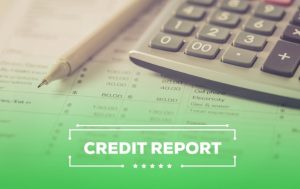With the introduction of Universal Credit, it’s important to be well-informed about the steps you need to take in order to apply. In this post, we’ll provide you with all the information you need to apply for Universal Credit, from gathering the necessary documentation to understanding the application process. We’ll also provide tips on what to do if you experience any problems along the way. So read on and get ready to start your journey to getting your new, improved financial life!
What is Universal Credit?

Universal Credit is a single payment that is meant to help people who are looking for work or on a low income. It provides recipients with a set monthly allowance that they can use to pay for things like food, housing, and utilities.
It is important to note that Universal Credit does not always provide enough money to cover all of these costs. In order to ensure that everyone who qualifies receives benefits, Universal Credit uses a sliding scale formula that takes into account your income, family size, and other factors.
Overall, Universal Credit has been met with mixed reviews. Some people believe that it is a good way to help people who are struggling economically, while others maintain that it is too complicated and difficult to use. However, there is no doubt that it is an important development in Britain’s welfare system and may be adopted by other countries in the future.
How to Apply for Universal Credit?

If you’re looking to apply for Universal Credit, the first thing you need to do is create a Universal Credit account. This is easy to do – just go to https://www.gov.uk/sign-in-universal-credit and click on the “Create My Account” button.
Once you’ve created your account, you’ll need to fill in some basic information about yourself. In addition, you’ll need to fill in a claim form for your partner – this is where all the hard work will start!
First of all, you’ll need to gather all the relevant information about your partner’s income and employee expenses. You’ll also need evidence of your partner’s identity (like a passport or driving license) and proof of residence (like a rental agreement or bank statement).
After you’ve collected all this information, it’s time to start filling in the claims forms! The process of claiming Universal Credit can be quite complicated and time-consuming, so make sure that you have all the necessary documents before starting.
Finally, make sure that you join your partner’s claim as soon as possible – this will ensure that everything goes smoothly from beginning to end.
Who Can Claim for Universal Credit?

Anyone who is aged 18 or over can claim Universal Credit, regardless of whether they’re in full-time education or training, have savings above £16,000, or are on State Pension. There are a few exceptions to this rule, but they are fairly limited. For example, people who are temporarily away from the UK due to military service or study abroad can’t claim Universal Credit while they’re away.
And people who are disabled can’t usually claim Universal Credit because it’s designed as a poverty-relieving measure rather than a disability-relieving measure. If you meet all the eligibility criteria and want to apply for Universal Credit, you’ll need to fill out an application form and send it along with some documentation (like payslips) to your local authority. You won’t be able to apply online – you must do this through your local authority.
What Documents Do I Need to Show for Universal Credit?

In order to apply for Universal Credit, you will need to provide your bank, building society, or credit union accounts details, an email address, and access to a phone. Additionally, you will need to show proof of residence (for people in the UK ) and identity (for people in the UK and some other countries).
Conclusion
There is no doubt that the Universal Credit system has its flaws. However, it is still a vital safety net for many people in the UK who are struggling to make ends meet. The government needs to do more to ensure that claimants receive the full amount they are entitled to, and that they are not left feeling trapped and hopeless.









Leave feedback about this